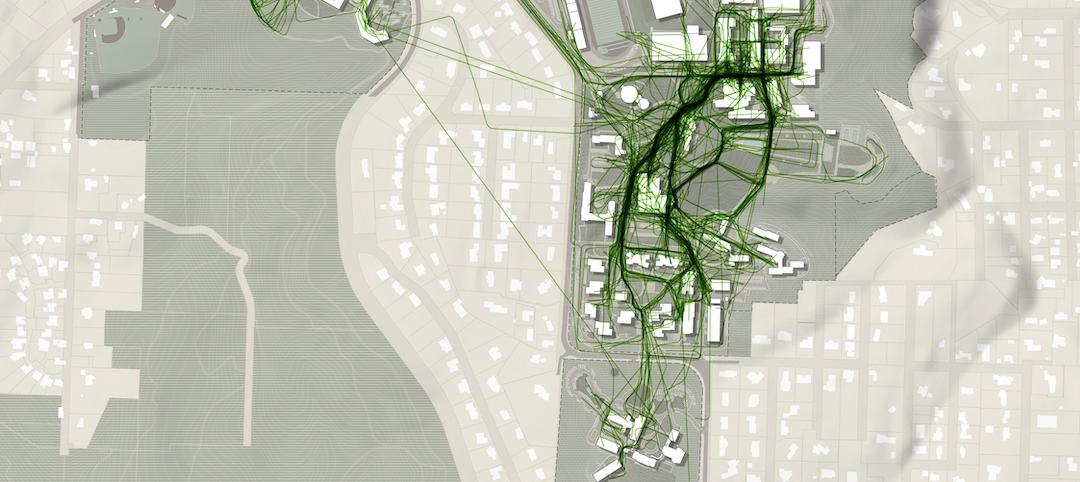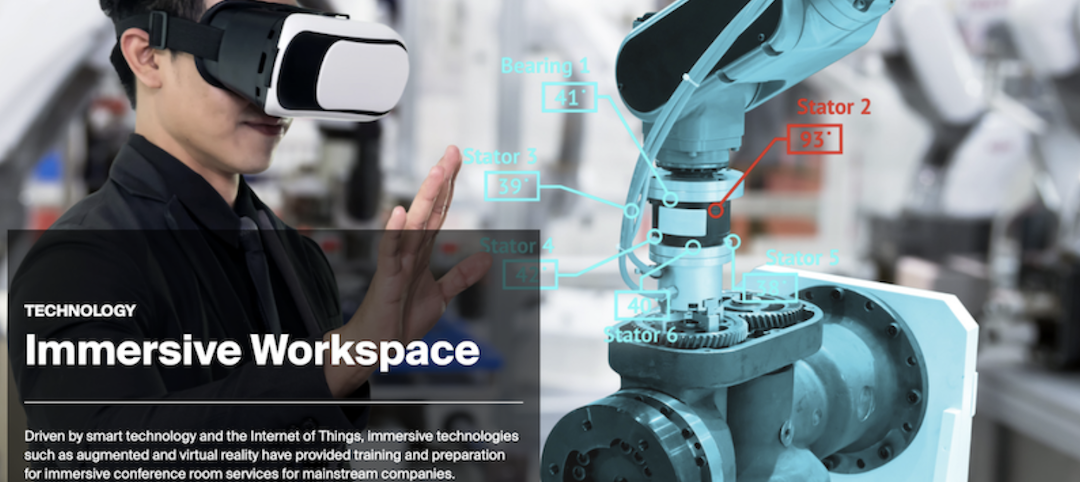Buildings have become data-rich environments, thanks to the proliferation of lower-cost sensing devices with greater computational power and data storage capacity.
As buildings get “smarter,” property owners and managers are looking for ways to organize data sets that derive from myriad formats, naming conventions, and syntaxes within buildings. Consequently, the global market for data integration technologies for buildings is expanding rapidly.
A new report by Navigant Research, “Data Integration for Intelligent Buildings,” estimates that revenue from the sale of these technologies will increase to $971.3 million in 2025, from $89.9 million in 2016.
Data integration still poses challenges, particularly in the area of analysis. The report points specifically to energy management systems in buildings that would be far more efficient if their data could be incorporated with data emanating from a building’s lighting systems, access controls, and demand response systems.
“For years, data-integrated buildings have shown promise in reducing energy and operational costs, especially as regulatory energy efficiency pressures and corporate sustainability strategies increase customer demand for data-driven solutions,” says Alvin Chen, Navigant’s research analyst. “The analytics software to effectively provide actionable insights is still being developed to deliver on this promise.”
The new report focuses on market demand in three areas: software, services, and hardware. It provides insights into the future of fully integrated energy management systems. And it provides forecasts for global market demand segmented by region (North America, Europe, Asia Pacific, and the rest of the world), offering type, and customer type (office, retail, education, healthcare, hotels and restaurants, institutional and assembly, warehouse, and transport), through 2025.
Some key questions the report addresses include:
• What are the challenges to developing expert systems for building integration?
• Which companies are pushing this market forward, and why?
• Which regions show the strongest investments for fully integrated energy management systems?
• How will the interoperability of these systems be further developed?
• Which customer types are likely to adopt data integration technologies the quickest?
The 44-page report identifies and takes a closer look at the marketing strategies of key industry players that include the usual suspects like Cisco Systems, Honeywell and Tridium, Johnson Controls, Intel, and Schneider Electric, along with other suppliers such as Candi Controls, SkyFoundry, Lucid, and Siemens Building Technologies.
Related Stories
Architects | Dec 20, 2021
Digital nomads are influencing design
As our spaces continue to adapt to our future needs, we’ll likely see more collaborative, communal zones where people can relax, shop, and work.
AEC Tech | Dec 16, 2021
Autodesk to Acquire Cloud Based Estimating Company ProEst
Autodesk, Inc. is acquiring ProEst, a cloud-based estimating solution that enables construction teams to create estimates, perform digital takeoffs, generate detailed reports and proposals and manage bid-day processes. Autodesk plans to integrate ProEst with Autodesk Construction Cloud, a comprehensive construction management platform connecting teams, data and workflows across the entire building lifecycle.
Urban Planning | Dec 15, 2021
EV is the bridge to transit’s AV revolution—and now is the time to start building it
Thinking holistically about a technology-enabled customer experience will make transit a mode of choice for more people.
Designers / Specifiers / Landscape Architects | Nov 16, 2021
‘Desire paths’ and college campus design
If a campus is not as efficient as it could be, end users will use their feet to let designers know about it.
AEC Tech | Oct 25, 2021
Token Future: Will NFTs revolutionize the design industry?
How could non-fungible tokens (NFTs) change the way we value design? Woods Bagot architect Jet Geaghan weighs risk vs. reward in six compelling outcomes.
Sponsored | BD+C University Course | Oct 15, 2021
7 game-changing trends in structural engineering
Here are seven key areas where innovation in structural engineering is driving evolution.
AEC Tech Innovation | Oct 7, 2021
How tech informs design: A conversation with Mancini's Christian Giordano
Mancini's growth strategy includes developing tech tools that help clients appreciate its work.
AEC Tech | Oct 5, 2021
EarthCam Builds On its Connectivity with Autodesk Construction Cloud
Premiering new visual verification features for Autodesk Build and BIM 360
AEC Tech | Sep 21, 2021
A new webtool follows ConTech from incubation to application and beyond
MIT and JLL have created Tech Tracker to help real estate professionals see what’s hot now and what might be.
Architects | Aug 5, 2021
Lord Aeck Sargent's post-Katerra future, with LAS President Joe Greco
After three years under the ownership of Katerra, which closed its North American operations last May, the architecture firm Lord Aeck Sargent is re-establishing itself as an independent company, with an eye toward strengthening its eight practices and regional presence in the U.S.

















